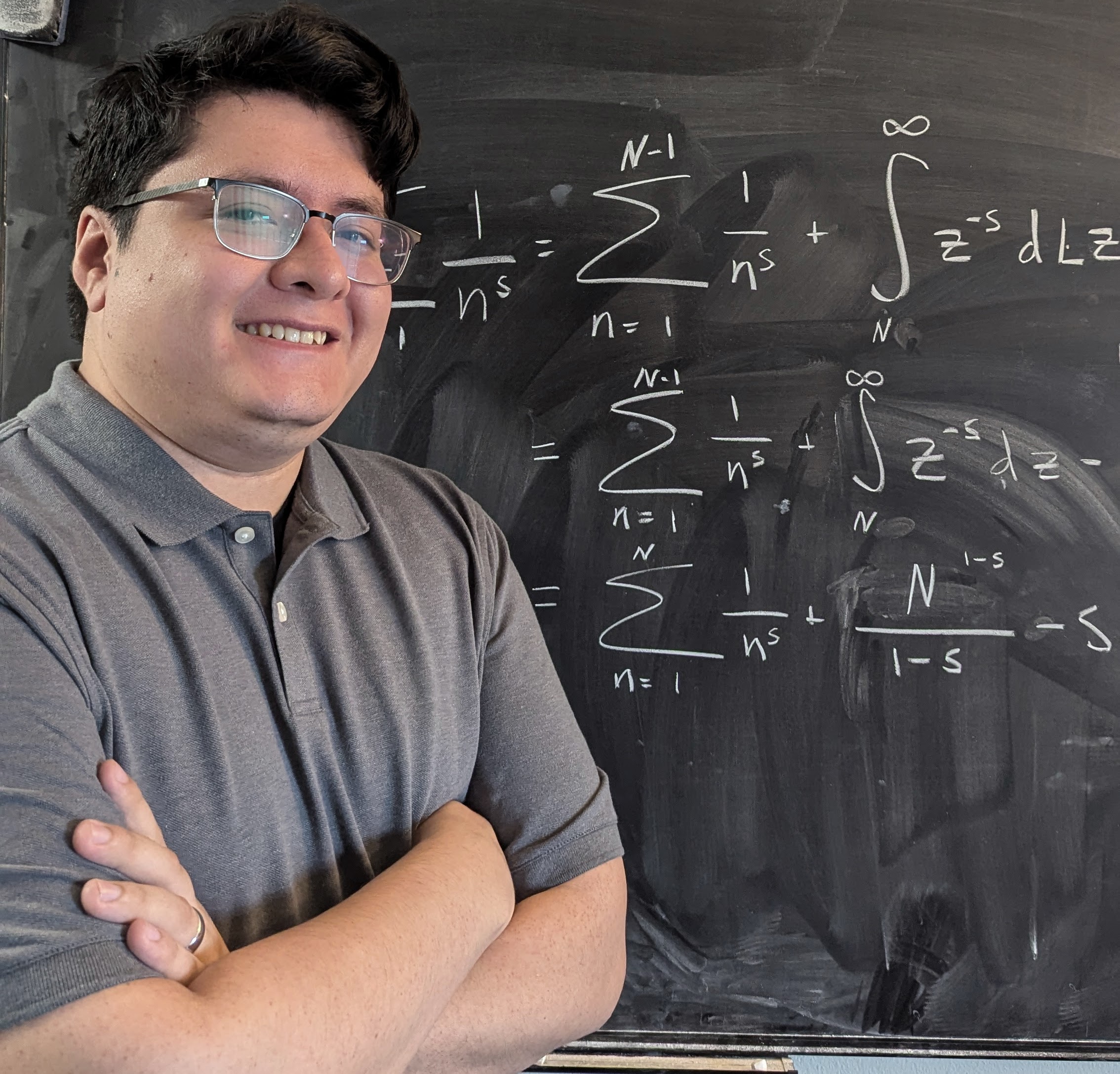for Webflow

Daniel Flores was born in Ecatepec de Morelos in Mexico City and immigrated to the United States at the age of four as a first-generation immigrant. Growing up as a Dreamer brought unique challenges that shaped his perspective and goals, instilling in him a strong sense of resilience and dedication to his academic journey.
He began his education in Houston, Texas, earning an Associate of Science degree from Lone Star College in 2016. During this time, his interest in mathematics deepened, leading him to pursue a Bachelor of Science in Mathematics at the University of Houston, which he completed in 2019. It was there that he discovered his passion for number theory.
Currently, Daniel is in the final year of his Ph.D. at Purdue University, where he works under Professor Trevor Wooley. His research focuses on analytic number theory, the Hardy-Littlewood circle method, harmonic analysis, and arithmetic statistics. Looking ahead, he hopes to further expand his expertise in sieve theory, additive combinatorics, and exponential sum bounds.
Daniel Flores’s research lies at the intersection of analytic number theory, harmonic analysis, and arithmetic statistics, with particular emphasis on the Hardy–Littlewood circle method and its applications to Diophantine equations. His work addresses fundamental problems concerning the Hasse principle and exponential sum estimates.
Flores has investigated the problem of K-multimagic squares, which are magic squares that remain “magic” not only when filled with integers, but also when those numbers are replaced by their squares, cubes, and so on up to the K-th power. While trivial constructions exist, finding genuinely new examples has been a long-standing challenge, and earlier approaches required extremely large squares. Using modern analytic techniques from the Hardy–Littlewood circle method, Flores showed that nontrivial multimagic squares exist at much smaller sizes than previously thought. In particular, he reduced the best known general bounds from an exponential dependence on K to just quadratic, and further proved that infinitely many multimagic squares can even be constructed with entries restricted to prime numbers.
As a graduate student, Flores has been invited to present his research on K-multimagic squares at several institutions and conferences. His talks on this topic include invited seminar presentations at Washington University in St. Louis, Rice University, Kansas State University, and Purdue University, as well as international invitations such as the Number Theory Seminar at the University of Göttingen. He also shared his results at the Joint Mathematics Meetings through the Math Alliance program and presented at the Number Theory Seminars at Stanford University and the University of California, Davis.
“To me, Hispanic Heritage Month is a time to pause and truly appreciate everything my family, especially my parents, have done for me and my sisters. When we came to the United States many years ago, my parents knew they might never see their family again. Even with that sacrifice, they pressed forward, determined to build a better life. Because of their courage and perseverance, my sisters and I have been able to grow up with opportunities my parents could only dream of in Mexico.”